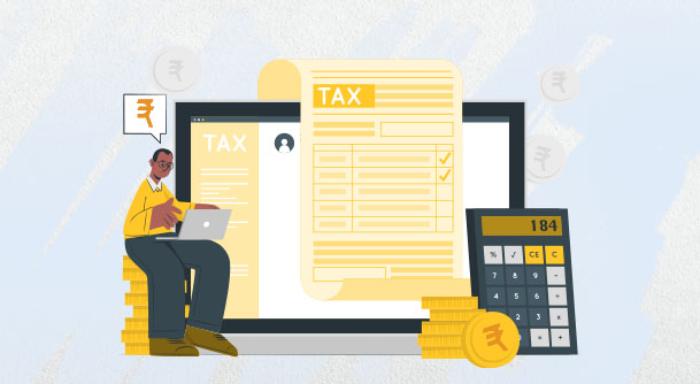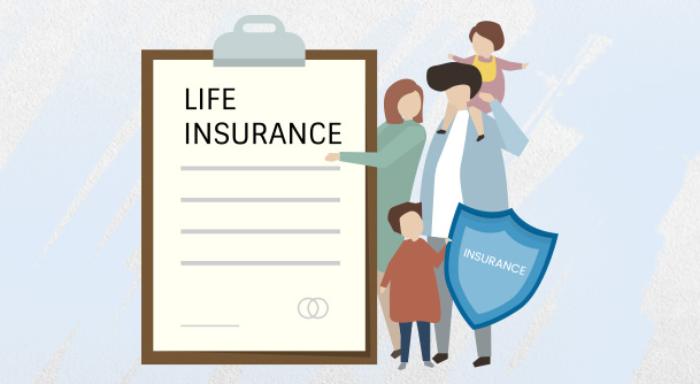Don't Overpay Taxes: Learn How to Save Smartly
Blog Title
3837 |
5/5/23 9:44 AM |
Proper tax planning is indispensable for every investor. In fact, it is a crucial part of financial planning, considering how most people prioritize it as a critical step towards saving on their tax liabilities. We’re sure you’re different with regard to your tax-saving goals. Hence, here are strategies to help you in every age category.
When you’re in your 20s
The 20s are an exciting time to start considering investment plans that can help you save taxes. This is when you can maximize your tax savings since you will have lesser responsibilities and have only begun your professional career. Here are some options that are worth considering in this regard:
- Life Insurance- You should choose a life insurance plan in your 20s in order to maximize your tax benefits. You may select a term insurance policy or any other form of life insurance, such as a ULIP (which combines insurance and investments). This will give you handsome tax deductions of up to Rs. 1.5 lakh on the premium payments under Section 80C. Starting early means that you can avail of higher insurance coverage at a relatively lower premium. You can change your nominees and increase your coverage amount (by paying a higher premium) at a later stage in your life when you need the same.
- Health Insurance- You should always opt for health insurance in your 20s in order to stay financially secure in case of any medical emergency or hospitalization. At the same time, it will help you get tax deductions up to Rs. 25,000 under Section 80D. You can also get additional deductions if you pay premiums for your parents (Rs. 25,000). If your parents are above 60, then you will get Rs. 50,000 as this additional deduction, taking your total tax savings to Rs. 75,000.
- ULIP- Unit-linked insurance plans are a key component of retirement planning and also for meeting other objectives like buying a house or car and covering your future costs like weddings and higher education of children. You should begin investing in ULIPs early on in order to maximize your returns due to the power of compounding over the long haul. You can get tax deductions on your premium payments up to Rs. 1.5 lakh under Section 80C for these investments as well. You also get additional life coverage throughout the policy tenure with these plans.
- Additional Investments- These include options like ELSS (Equity-Linked Savings Schemes), PPF, tax-saver FDs, NSC, and others which are tax-deductible under Section 80C, in case you have not maximized the overall deduction amount of Rs. 1.5 lakh yet.
- HRA- You can claim HRA as per Section 10 (13A), which is the lowest of either the actual rent paid (more than 10% of salary)/HRA from the employer/50% of the salary in metro cities and 40% of the salary in non-metro cities.
- Education Loans- The 20s are also a great time to repay education loans that you may have taken earlier. You can get a deduction on the interest component of the education loan for a maximum duration of eight years or until the interest is paid (whichever comes earlier) as per Section 80E.
When you’re in your 30s
The 30s are also a good time to start consolidating your tax planning strategies. This is because most people usually buy a house during this period while also getting married, having children, and taking on more responsibilities. You may also come into a higher tax slab during this period. Here are the steps that you should follow in this case:
- Home Loans- You can get deductions on repaying the principal component of the home loan under Section 80C based on specific terms and conditions. You may also get deductions on home loan interest repayment up to Rs. 2 lakh per year as per Section 24.
- Retirement Planning Investments- If you did not start your retirement planning initiatives in your 20s, then the 30s are when you must begin them. Go for ULIPs and other pension plans, which will give you applicable life insurance coverage and tax deductions up to Rs. 1.5 lakh under Section 80C. You may also choose the NPS (National Pension Scheme) for similar deductions under Section 80CCD.
- Updating Life Insurance- Increase your life insurance or term insurance coverage to cover the financial needs of your spouse and children at this stage. Pay higher premiums for your chosen coverage amount, leading to higher Section 80C deductions.
- Upgrade health insurance- You should also upgrade your health insurance plan accordingly to cover everyone in the family, accounting for inflation. This will help you get higher deductions under Section 80D on your premium payments as well.
- Equity & Debt Funds- Through ULIPs, you can invest in debt and equity funds to achieve future goals. This will also help you maximize your tax deductions under Section 80C.
When you’re in your 40s
This is a time when your responsibilities increase, with higher education of children, family costs, and even additional health expenditures becoming necessary overheads. You should look at some options, as listed below while continuing with your life and health insurance policies.
- Education Loan for Children- You can consider taking an education loan for your child, getting tax deductions under Section 80E on the interest component for a maximum duration of eight years or until the loan interest is paid.
- Child Plans- You can consider a combination of insurance and investment through a dedicated child plan that ensures tax deductions along with future investments to secure your child’s future in case of anything untoward happens to you or your spouse.
- Continuing ULIPs- While you are in your 40s, you will naturally want to switch more towards debt funds for lower risks. You can use the fund-switching option to reallocate more investments towards debt funds now that you have got attractive returns from your equity funds in the long run (provided you started investing early).
- Retirement Planning- You should look at NPS, ULIPs, and dedicated pension plans with tax deductions under various categories.
When you’re in your 50s and Above
Before retiring, you should seek to pay off all of your debts and concentrate completely on retirement planning. The 50s are a time for withdrawals rather than additions. Here's what you need to know.
- Housing Loan: Make careful to pay off all house loan interest before retiring. It can be difficult to pay the interest on your pension.
- Child Education Loan: Because you and your child are eligible for tax breaks, you may want to defer paying the interest and let your child handle it. They can deduct their expenses under Section 80E of the Income Tax Act of 1961.
- Retirement Planning: Besides making contributions, you should now plan your withdrawals. Make that you are aware of the tax implications of withdrawals. For example, 40% of NPS withdrawals are tax-free when they mature.
- Examine your Life Insurance Policy: Examine your life insurance policy to ensure it continues to fit your needs and offers enough coverage.
- Use your Senior Citizen Benefits: Once you reach the age of 60, you are eligible for various tax breaks, such as a larger basic exemption level and no tax on income from fixed deposits and savings accounts up to ₹50,000. This can be a fantastic opportunity to lower your tax liability while increasing your after-tax income. Take advantage of these perks and use them to the fullest degree possible.
Neha Panchal - Financial Content Writer
Neha used to be an Engineer by Profession and Writer by passion, which is until she started pursuing full-time writing. She's presently working as a Financial Content Writer, with a keen interest in all things related to the Insurance Sector.












